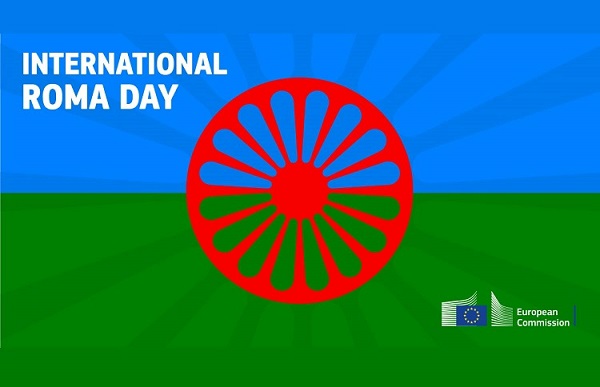 Credit: European Commission
Credit: European Commission
Monday 8 April 2024 marks International Roma Day, an occasion to celebrate Roma culture and history but also to raise awareness of the challenges and discrimination facing Europe’s largest ethnic minority.
International Roma Day commemorates the first World Romani Congress, an important international meeting held on the outskirts of London on 8 April 1971. This congress established the Roma flag and anthem.
Europe is home to an estimated ten to twelve million Roma people, about six million of whom are believed to live in the European Union. This umbrella term (Roma) encompasses diverse groups, from Roma and Sinti to Kale and Traveller populations, among others.
Over the years, the Roma have faced discrimination and negative stereotypes, with many also often living in poor socio-economic conditions. Despite anti-discrimination and awareness-raising measures at EU level, such as the 2020-2030 EU Roma Strategic Framework for Equality, Inclusion and Participation, a significant number of Roma people continue to suffer from poverty and exclusion. In Luxembourg earlier this year, there was controversy over remarks made by an alderwoman who later apologised for her "inappropriate" comments in relation to the Roma community and organised begging in Luxembourg City.
Ahead of this year's International Roma Day, the European Commission Vice-President for Values and Transparency, Vĕra Jourová, the Commissioner for Equality, Helena Dalli, and the Commissioner for Neighbourhood and Enlargement Negotiations, Olivér Várhelyi, issued a statement in which they described the day as "a celebration of diversity, of Roma culture and art, of their language and contribution to European history and society". However, they also acknowledged that Roma people still "face high levels of antigypsyism and discrimination in their daily lives", adding that "80% of Roma in ten EU countries are at risk of poverty, 52% experience housing deprivation, 22% live in homes without running water". Challenges also persist in terms of equal access to rights and services such as education, employment and healthcare. The speakers thus called on EU Member States and enlargement partners to "step up their efforts to match the extent of the challenges and achieve visible progress".
In a separate statement, Gudrun Mosler-Törnström, Standing Rapporteur on Human Rights for the Congress of Local and Regional Authorities of the Council of Europe, similarly recalled that "Roma continue to face specific challenges, including discrimination, marginalisation and socio-economic disparities". She stressed the "crucial role" played by local and regional authorities "in addressing these issues by fostering inclusive environments and promoting the full integration of Roma communities into local societies." Ms Mosler-Törnström relayed the Congress' calls for "all stakeholders to redouble their efforts in championing the rights and dignity of Roma people, fostering social cohesion, and building inclusive societies where diversity is celebrated and respected."
Various events have been organised to mark International Roma Day this year. In Strasbourg, the European Youth Centre hosted 40 young Roma activists and leaders for a seminar dedicated to Roma youth empowerment. This event took place from Friday 5 to Monday 8 April 2024 and was co-organised by the Council of Europe’s Youth Department and Roma and Travellers Division, in cooperation with the European Roma Institute for Arts and Culture (ERIAC), TernYpe, the European Roma Gr assroots Organisations (ERGO) Network and Phiren Amenca. On the initiative of the Brussels Council for Cultural Diversity and with the cooperation of Arthis - The Belgian Romanian Cultural House asbl, the City of Brussels hosted an event on Saturday 6 April 2024 featuring music concerts and information and awareness-raising stands.
Chronicle.lu has not been able to confirm any similar events taking place in Luxembourg, and the Ministry of Family Affairs, Solidarity, Living Together and Reception of Refugees confirmed that it was not planning any activity on this occasion. The ministry added that it does, however, form part of EU networks and working groups that focus on the topic of Roma. Whilst there is no official data regarding Roma in Luxembourg, the Council of Europe has estimated in recent years that about 300 Roma people live in the Grand Duchy.








